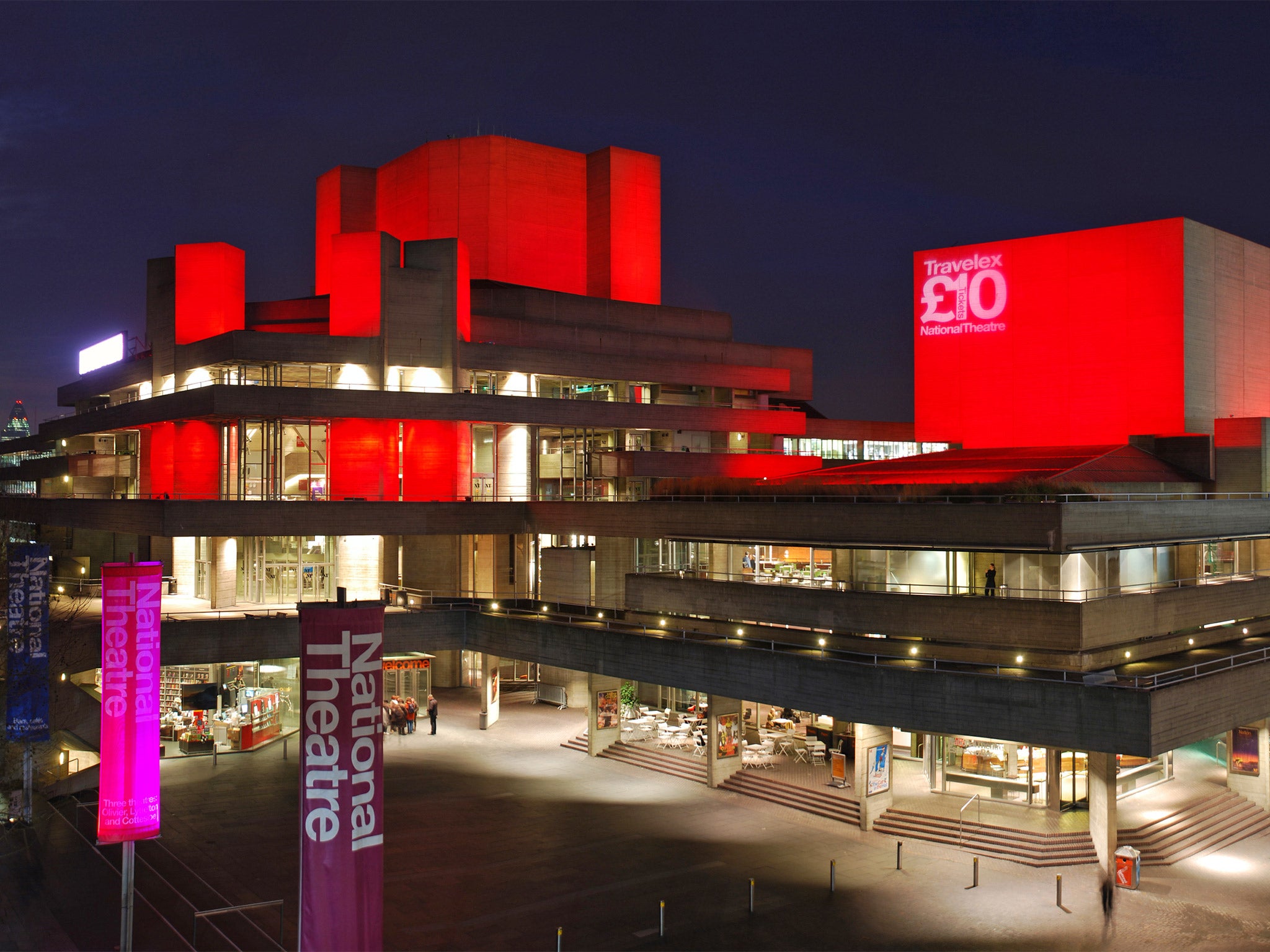Famous female writers and directors can't get work at the National Theatre – so what hope do any women have?
The institution is supposed to do what it says on the tin: create theatre for the nation. I say it does neither, and hasn’t since it was established in 1963

Your support helps us to tell the story
From reproductive rights to climate change to Big Tech, The Independent is on the ground when the story is developing. Whether it's investigating the financials of Elon Musk's pro-Trump PAC or producing our latest documentary, 'The A Word', which shines a light on the American women fighting for reproductive rights, we know how important it is to parse out the facts from the messaging.
At such a critical moment in US history, we need reporters on the ground. Your donation allows us to keep sending journalists to speak to both sides of the story.
The Independent is trusted by Americans across the entire political spectrum. And unlike many other quality news outlets, we choose not to lock Americans out of our reporting and analysis with paywalls. We believe quality journalism should be available to everyone, paid for by those who can afford it.
Your support makes all the difference.Last week the National Theatre (NT) announced its new season. Out of six plays there are four new commissions and two revivals. A man has written every one of them. A woman – Amy Hodge – will direct only one, and it’s the kids’ show.
In 2016, artistic director Rufus Norris guaranteed that the NT would reach 50:50 representation for female writers and directors by 2021. Last year they managed just seven-and-a-half plays written by women out of a possible 21. With this latest upcoming season of male-led work, it’s not looking good.
There has justifiably been public outrage. Rufus Norris, alongside new joint chief executive Lisa Burger, have contritely responded to the backlash. They promise they will do better, they have been trying, but honestly, “it’s hard”, said Burger on Radio 4’s Front Row.
Why is it hard? There is an abundance of established, exceptional female writers and directors – both young and old – who prove their craft time and again, but are not getting the same opportunities as male artists.
It is unnerving that as an “emerging” playwright myself with nine years’ experience, I see female theatre-makers with more than 20 years’ worth of critical acclaim not being given a platform at the NT.
Take for example playwright Winsome Pinnock. She has written numerous award-winning plays. Her 1987 show Leave Taking was the first play penned by a black woman on the NT stage. As one of Britain’s best known black playwrights, you would think the NT would consistently commission Pinnock (as they have done with playwrights David Hare and Tom Stoppard) and would be begging her to write for their upcoming seasons. Yet the last time her work was staged at the NT was in 1999.
What about director Jenny Sealey MBE? Not only has she been artistic director of the world-class, disability-led theatre company Graeae since 1997, she is a genuine innovator, having pioneered the concept of creative integration of access in British theatre. How is it then that she has only directed a one-day performance of And Others at the NT?
And what of playwright Charlotte Jones? Her play The Meeting at Chichester Festival Theatre was one of the most nuanced dramas in 2018, with a slew of four-star reviews from all the major broadsheets. Yet it did not get a London transfer or a national tour. It deserved it. Would it have been the same if a male playwright had written it?
The National last produced Jones’ work in 2001, with her multi-award winning and sell-out show Humble Boy transferring to the West End and Broadway. You might assume given this production’s colossal success they would commission her again. But no.
So if the NT can’t champion a generation of eminent female theatre-makers, what hope do emerging and mid-career artists have, like writers Theresa Ikoko and Kaite O’Reilly, and directors Róisín McBrinn and Balisha Karra?
There is hope. Some theatres are changing their ways. One major theatre proving that this shift can be done, and swiftly, is the Royal Court. Their current season includes nine new productions, with six female writers and/or female devising teams, and eight female directors. This publicly funded theatre is supporting both emerging and established female artists to develop and stretch their artistic muscles.
The National Theatre is supposed to do what it says on the tin: create theatre for the nation. It is meant to represent the national demographic both in the stories it tells and in the people it hires. It does neither, and hasn’t ever since it was established in 1963 at the Old Vic Theatre.
Following the construction of the Olivier, the NT’s largest theatre, in 1977, a meagre 19 plays have been written by women for this stage. Two were co-written by men, and one ran for three days.
The NT may excuse this with the fact that they put on female-led plays in their smaller spaces, but therein lies the rub. If reputable female artists are lucky enough to get a foot through the NT door, they will almost certainly be given the smallest platform available due to their perceived risk factor.
Female theatre-makers are not financially precarious. If the NT had the gall to put us on habitually, they may find that 65 per cent of theatre-goers are female, and guess what? We like supporting each other. We may have to move our footfall to theatres that are willing to put on exceptional female-led work. You have been warned.
Join our commenting forum
Join thought-provoking conversations, follow other Independent readers and see their replies
Comments